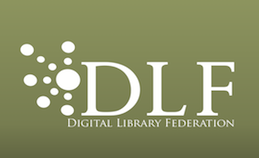Supporting Digital Humanities in the Library
Constellation B: Tuesday, November 1, 10:30AM to 12:00PM
The information landscape has evolved in recent decades, resulting in an existential crisis for academic libraries. Activities we’ve taken for granted for more than a century (research and publishing models, our services, our content) need to be redefined in partnership with our users. Meanwhile, patrons demand new kinds of support and new modes of collaboration. In this panel, representatives from two academic libraries will describe their research into the changing roles of academic librarians in the humanities. At New York University, librarians are exploring new service models to support digital scholarly research, collaboration, and sharing. At Emory University, librarians are experimenting with a new model for how a library can lead and collaborate with scholars in digital humanities activity.
NYU’s current project is to better understand the research and publishing needs of scholars in the humanities at NYU and to develop service and staffing models to support new web-based forms of scholarly communication. We have talked to peer institutions that support these modes of scholarship and have interviewed NYU faculty to learn about what they need in this domain. The resulting report will identify a set of unmet user needs at NYU and will propose possible service and staffing models to address them. We will briefly describe our research and early findings.
A representative from the Emory University Libraries will describe librarians’ initial steps to meet these challenges, based on local experience and a nationwide ARLSPEC survey of research libraries’ digital humanities offerings. With the support of a three-year Mellon grant, Emory Libraries are building a program to support digital humanities research, with an emphasis on scholar-librarian collaboration. This experimental program is designed to address the observation (both from the Emory community and respondents to the ARL-SPEC survey) that libraries are already participating in digital humanities projects in many ways. But librarians often piece together support for digital projects from multiple library or campus units, and they seldom have formal procedures in place for managing scholars’ expectations, apportioning developers’ time, and defining projects’ long-term future. To address these concerns, Emory’s digital scholarship program aims to be fluid, dynamic, and responsive to experiences on the ground.
In the discussion that follows these brief presentations, we aim to produce a shared understanding of the important questions we still need to answer, staffing needs and skill gaps, and some emerging best practices, methods, and tools to be successful.
Of particular interest to us are: new service models adopted at other libraries and presses; evolving staff roles and skills needed to sustain these efforts; the relationship between enterprise services, one-off projects, and R&D; and successful models for ongoing partnership among scholars, libraries, and presses.
Session Leaders
Jennifer Vinopal is New York University’s Librarian for Digital Scholarship Initiatives. She has a variety of roles at NYU including: Project Manager for NYU’s Digital Library Technology Services; Co-Head of the Digital Studio, NYU’s gateway to digital services supporting scholarship and teaching; and subject specialist for French and Italian language and literature. Her background is in humanities scholarship, library collection development, and public service. She is primarily interested in creating person to person services (on-site, remote, virtual, etc.) to encourage and support scholars’ use of technology for research, teaching and learning.
Monica McCormick leads the Office for Digital Scholarly Publishing at New York University, reporting jointly to the Division of Libraries and NYU Press. She initiates and supports services for digital publishing at both organizations, as well as collaborations between them. She is a librarian with long experience in scholarly publishing, having worked for 15 years at the University of California Press, mainly as the editor for history and ethnic studies.
Tim Bryson is the Librarian for South Asian Studies and Religious Studies at Emory University. With Alain St. Pierre, Tim also serves as coordinator of Emory Libraries’ Digital Librarians Initiative. Tim earned his Ph.D. at the University of Chicago.
Miriam Posner is a Mellon Postdoctoral Fellow for Emory University Libraries’ Digital Scholarship Commons. She helped to research, design, and plan this new digital humanities center, and is now managing projects, conducting outreach, and heading up its grad fellows program. She received her Ph.D. in Film Studies and American Studies from Yale University.
Alain St. Pierre is Humanities Librarian for European History and Philosophy at Emory University. He currently serves as Coordinator for Emory Libraries’ Digital Librarians Initiative. Alain received an M.A. in History from the University of Notre Dame and an MSIS from the University of Texas.
